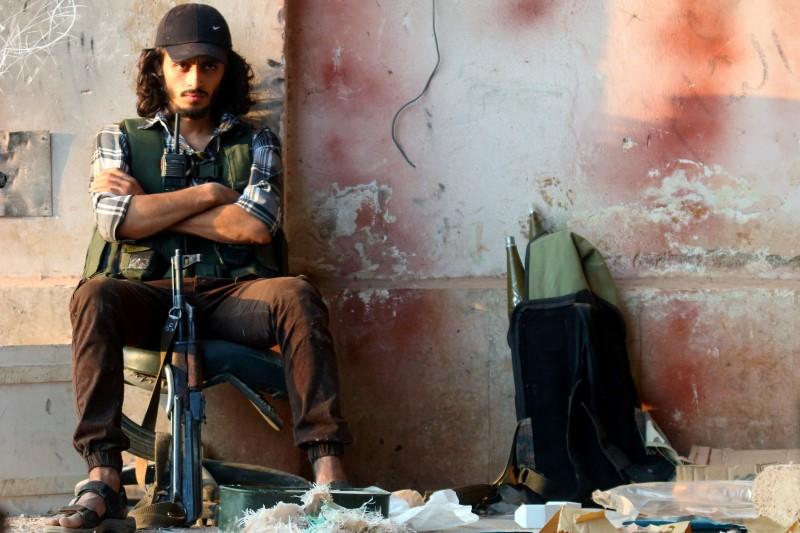The United Nations called on Tuesday for an urgent ceasefire in the divided Syrian city of Aleppo, where battles have crippled its infrastructure, leaving 2 million residents without running water with children most at risk of disease, the U.N. children’s agency said on Tuesday.
The U.N. called for a “humanitarian pause” in the fighting after Syrian activists said government warplanes were bombarding opposition-held parts of the city.
Access is needed to deliver food and medical supplies and for technicians to repair electricity networks that drive water pumping stations, which were heavily damaged in attacks on civilian infrastructure last week.
“The U.N. is extremely concerned that the consequences will be dire for millions of civilians if the electricity and water networks are not immediately repaired,” it said in a statement.
The statement was signed by Yacoub El Hillo, U.N. Resident and Humanitarian Coordinator for Syria, and Kevin Kennedy, U.N. regional humanitarian coordinator for the Syria crisis.
“At a minimum, the U.N. requires a full-fledged ceasefire or weekly 48-hour humanitarian pauses to reach the millions people in need throughout Aleppo and replenish the food and medicine stocks, which are running dangerously low,” the two said in a statement from Damascus.
Rival parties, however, were seen bringing in reinforcements to Aleppo ahead of an expected new round of fighting after opposition groups effectively broke a government-imposed siege and cut a key government route to the city over the weekend.
An estimated 250,000-275,000 people are trapped in eastern Aleppo following the closure of Castello road last month, the last remaining access route to the opposition-held part of the city, the statement added.
U.N. Special Envoy for Syria Staffan de Mistura and U.N. Emergency Relief Coordinator Stephen O’Brien are to brief the Security Council on the deteriorating situation in Aleppo on Tuesday.
CHILDREN AT RISK
The U.N. Children’s Fund (UNICEF) expressed concern over young children being especially vulnerable to diarrhea and other water-borne diseases from a heatwave and drinking dirty water.
“In the eastern parts of Aleppo up to 300,000 people – over a third of them are children – are relying on water from wells which are potentially contaminated by fecal matter and unsafe to drink,” UNICEF spokesman Christophe Boulierac told a briefing.
UNICEF and other aid agencies are bringing emergency drinking water by truck to an estimated 325,000 people in western Aleppo per day, he said.
But Aleppo’s sick and wounded lack access to health care.
In July there were at least 10 confirmed attacks on health facilities in Aleppo city, the World Health Organization said.
“According to Eastern Aleppo City local health authorities, 8 out of 10 hospitals and 13 out of 28 primary health care centers are now partially functional or out of service as a result of these attacks,” WHO spokesman Tarik Jasarevic said.
“Only 35 medical doctors remain in the city, and their capacity to cope with the excess demand has been overwhelmed,” he said, quoting local health authorities.
